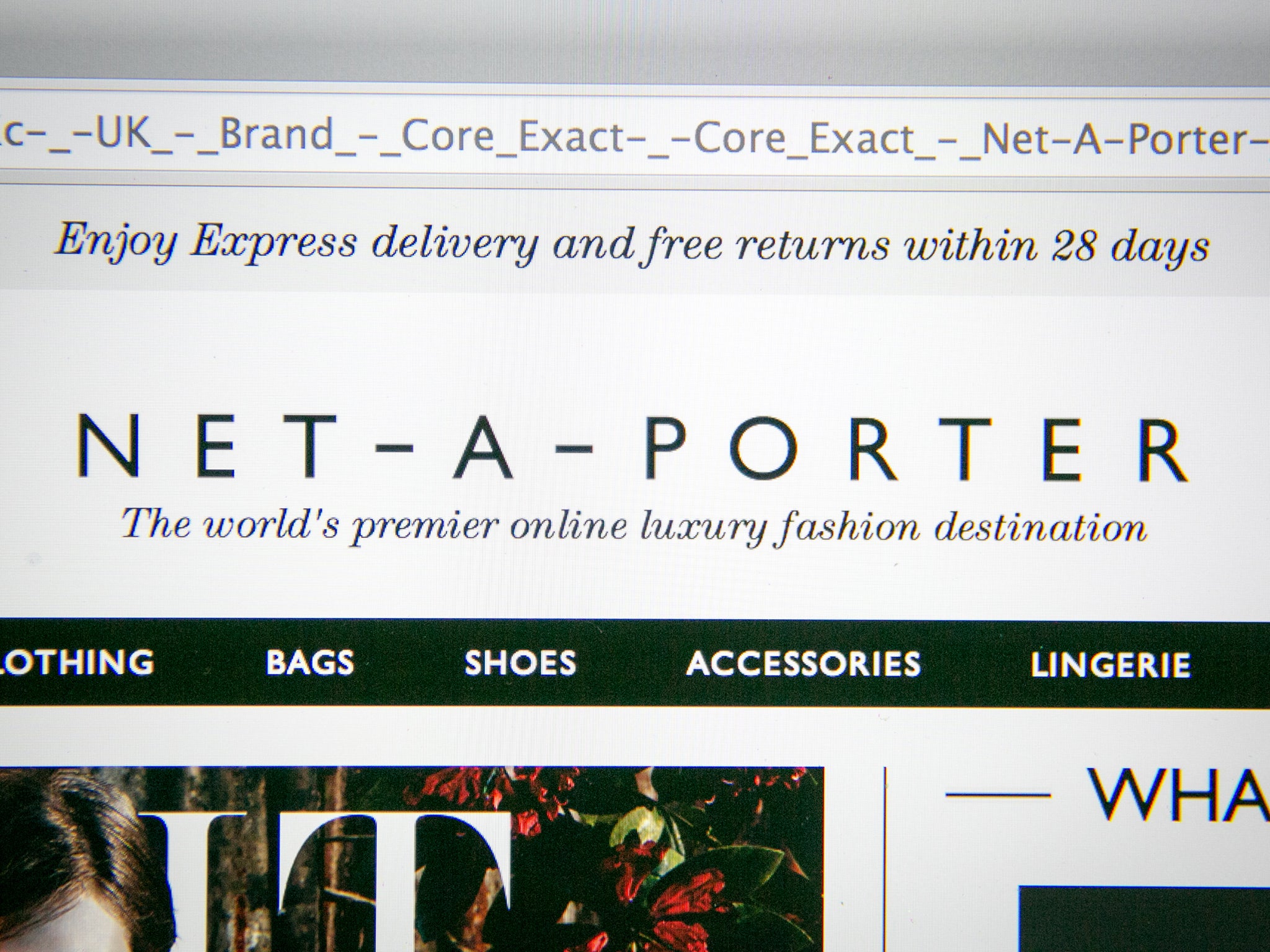Fashion is gearing up for the luxury goods.com-glomerate
The merger between Net-a-Porter and the Yoox Group is about much more than just a couple of companies trying to make more money

Your support helps us to tell the story
From reproductive rights to climate change to Big Tech, The Independent is on the ground when the story is developing. Whether it's investigating the financials of Elon Musk's pro-Trump PAC or producing our latest documentary, 'The A Word', which shines a light on the American women fighting for reproductive rights, we know how important it is to parse out the facts from the messaging.
At such a critical moment in US history, we need reporters on the ground. Your donation allows us to keep sending journalists to speak to both sides of the story.
The Independent is trusted by Americans across the entire political spectrum. And unlike many other quality news outlets, we choose not to lock Americans out of our reporting and analysis with paywalls. We believe quality journalism should be available to everyone, paid for by those who can afford it.
Your support makes all the difference.Last week, the fashion industry changed for ever.
Maybe. At least, I think it did. I’m talking about the merger between the online luxury retailer Net-a-Porter and the Yoox Group, which is about much more than just a couple of companies trying to make more money. I reckon it’s about a lot of rich men, trying to get even richer, by richly dressing rich women. And they now want to do it mostly online.
I think that the ungainly titled Yoox Net-a-Porter Group (how long before they change that moniker to something streamlined, like Kering?) represents the world’s first online luxury goods conglomerate. Richemont (which owns 50 per cent of the newly formed company, whose revenue is set to approach £1bn annually) also has stakes in conventional companies, such as the French fashion houses Chloé and Alaia, as well as the jewellers Cartier, Van Cleef & Arpels and Piaget. But this is a bold and brave move in the online arena.
The two companies differ greatly: Net-a-Porter markets itself in a magazine format (it launched its own real-life glossy, Porter, to capitalise on that perception), while Yoox is, arguably, more nuts and bolts, and less glossy.
However, the really interesting part of Yoox’s business is its work for designers: “Powered by Yoox” is a phrase that appears at the bottom of a multitude of designer websites, from Marni to Armani, and a fair few that don’t rhyme in b etween.
“Real life”, “conventional” and “in world” are phrases I find myself using a lot here. Because I feel like this merger – of online luxury meeting online luxury – is indicative of a new power at play in international fashion, that of e-commerce. It’s not so new, granted – both Net-a-Porter and Yoox were founded 15 years ago – but it’s taken a while for fashion’s heavy hitters to really get behind it.
Hot on the heels of this merger news last week came the startling announcement that Chanel is gearing up to launch its own e-commerce operation, as early as 2016. It was seen as the final bastion – Hermès, Dior and Louis Vuitton all offer goods online, through mono-branded e-tail sites.
Could this be as significant a shift for fashion as the birth of the luxury-goods conglomerate was in the Eighties? I think so. In the crowded global marketplace, it’s one of the few places where there’s room for growth: according to consultancy firm Bain & Company, online sales currently represent just five per cent of approximately £162bn spent on luxury goods.
If this venture proves successful, and rakes in profits and consumers, we may be gearing up for the age of the luxury-goods .com-glomerate.
Join our commenting forum
Join thought-provoking conversations, follow other Independent readers and see their replies
Comments